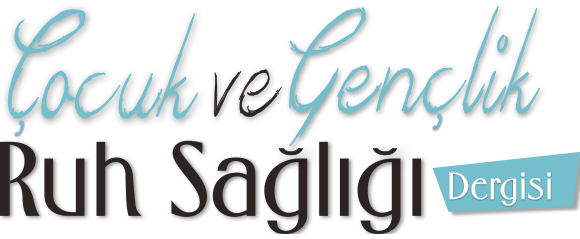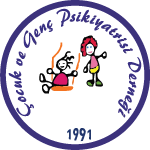ABSTRACT
Objectives:
This research aims to reveal the relationship between problematic internet use by children, their depression levels and their mother’s psychological resilience.
Materials and Methods:
This study consists of 384 3rd and 4th grade elementary students and their mothers who live in İstanbul. The children completed sociodemographic information form and the children's depression inventory, the mothers completed “sociodemographic ınformation form”, “family-child internet addiction form” and “brief psychological resilience scale”.
Results:
According to the results, maternal psychological resilience and children’s problematic internet use are correlated. The mothers’ psychological resilience, the children’s depression levels, and problematic internet use were differentiated by different variables. According to the correlation and regression analysis, the mothers’ psychological resilience predicted their children’s problematic internet use negatively while the depression level of children predicts internet addiction positively.
Conclusion:
This study highlighted the importance of research on problematic internet use in children, the consideration of depression when evaluating internet addiction, and the effect of the psychological resilience of mothers on the well-being.
Keywords:
Internet, depression, psychological resilience
References
1Orhan F, Akkoyunlu B. İlköğretim öğrencilerinin internet kullanımları üzerine bir çalışma. Hacettepe Üniversitesi Eğitim Fakültesi Dergisi. 2004:107-116.
2Eşği N. Aile-çocuk internet bağımlılık ölçeği’nin Türkçeye uyarlanması: geçerlik ve güvenirlik çalışması. Kastamonu Eğitim Dergisi. 2014:22:807-839.
3Topan A, Ayyıldız-Kuzlu T, Özsavran M, Mutlu B. İlkokul öğrencilerinin bilgisayar, internet kullanımı ve bilgisayar oyunları hakkındaki düşünceleri. Çocuk Dergisi. 2020:20:20-26.
4Morahan-Martin J, Schumacher P. Incidence and correlates of pathological internet use among college students. Comput Human Behav. 2000:16:13-29.
5Caplan SE. Problematic internet use and psychological well-being: development of a theory-based cognitive- behavioral measurement instrument. Comput Human Behav. 2002:18:553–575.
6Ögel K. İnternet Bağımlılığı (1. basım). İstanbul: Türkiye İş Bankası Kültür Yayınları; 2012.
7Mustafaoğlu ÖÜR, Yasacı AGZ. Dijital teknoloji kullanımının sağlık üzerine olumsuz etkileri. In: A. Kılıç, Hİ Bülbül, eds. Dijital Okuryazarlık: Araçlar, Metodolojiler, Uygulamalar ve Öneriler. İstanbul: Nobel Akademik Yayıncılık; 2020: 257-294.
8Young K, Rodgers C. The relationship between depression and internet addiction. Cyberpsychol Behav. 1998:1:25-28.
9Tamar M, Özbaran B. Çocuk ve ergenlerde depresyon. Klinik Psikiyatri. 2004:2:84.
10American Psychiatric Association. Diagnostic and statistical manual of mental disorders (5th ed.). (DSM-5). American Psychiatric Association. Arlington, VA, 2013.
11Turgay A, Ercan ES. Mutsuz Çocuk-Çocuklarda ve Ergenlik Döneminde Depresyon (1. basım). İstanbul: Remzi Kitabevi; 2004.
12Miller JA. Çocuklarda Depresyon (1. basım). İstanbul: Özgür Yayınevi; 2002:47.
13Beck AT. Cognitive therapy of depression: A treatment manual. NY: Guilford Press; 1979.
14Bernaras E, Jaureguizar J, Garaigordobil M. Child and adolescent depression: A review of theories, evaluation instruments, prevention programs, and treatments. Front Psychol. 2019:10:543.
15Kobasa SC. Stressful life events, personality, and health: An inquiry into hardiness. J Pers Soc Psychol. 1979;37:1–11.
16Greene R. Human behavior theory: A resilience orientation. In: R. Greene, ed. Resiliency: An integrated approach to practice, policy, and research. Washington DC: NASW Press. 2002:1-28.
17Downey G, Coyne JC. Children of depressed parents: An integrative review. Psychol Bull. 1990:108:50-76.
18Lam LT. Parental mental health and internet addiction in adolescents. Addict Behav. 2015:42:20-23.
19Ahmadi Z, Jafarizadeh M, Haghani H. Relationship between girls’ internet addiction and their mothers’ psychological and spiritual health. Journal of Client-Centered Nursing Care. 2018:4:155-164.
20Kındırlıoğlu Z, Ekici-Yaşar F. Ebeveynlerin psikolojik iyi oluş ve psikolojik dayanıklılık düzeyleri ile çocukların sosyal yetkinlik ve davranışları arasındaki ilişki. Adıyaman Üniversitesi Eğitim Bilimleri Dergisi. 2019:9:138-157.
21Byrne BM. Structural equation modeling with AMOS: Basic concepts, applications and programming. 2nd Ed. NY: Routledge Taylor & Francis Group; 2001.
22George D, Mallery P. SPSS for Windows step by step. A simple study guide and reference. 10th ed. GEN, Boston, MA: Pearson Education: 2010.
23Hair JFJ, Black WC, Babin BJ, Anderson RE, Tatham RL. Multivariate data analysis. New Jersey: Prentice-Hall: 2010.
24Garson GD. Testing statistical assumptions. Asheboro, NC: Statistical Associates Publishing: 2012.
25Kovacs M. Rating scales to assess depression in school-aged children. Acta Paedopsychiatr: 1981;46:305-315.
26Öy B. Çocuklar için depresyon ölçeği: Geçerlilik ve güvenirlik çalışması. Türk Psikiyatri Derg. 1991:2:132-136.
27Smith BW, Dalen J, Wiggins K, Tooley E, Christopher P, Bernard J. The brief resilience scale: assessing the ability to bounce back. Int J Behav Med. 2008:15:194-200.
28Doğan T. Kısa psikolojik sağlamlık ölçeği’nin Türkçe uyarlaması: Geçerlik ve güvenirlik çalışması. The Journal of Happiness & Well-Being. 2015;3:93-102.
29Rout UR, Cooper CL, Kerslake H. Working and non‐working mothers: a comparative study. Women in Management Review. 1997:12:264–275.
30Koirala A, Khadka BR. Exploitation of Women and Children in Nepal: In The Name of Travel, Tourism and Marriage. Antyajaa: Indian Journal of Women and Social Change. 2017;2:155-159.
31Kurt AS, İnce P, Arslan FT. İlköğretim ikinci kademede öğrenim gören öğrencilerin bilgisayara karşı tutumları. J Pediatr Research. 2014:1:22-27.
32Hsieh Y, Shen AC, Wei H, Feng J, Huang SC, Hwa H. Internet addiction: a closer look at multidimensional parenting practices and child mental health. Cyberpsychol Behav Soc Netw. 2018:21:768–773.
33Shek DTL, Zhu X, Dou D. Influence of family processes on internet addiction among late adolescents in Hong Kong. Front Psychiatry. 2019:10:113–120.
34Gariepy G, Honkaniemi H, Quesnel-Vallee A. Social support and protection from depression: systematic review of current findings in Western countries. Br J Psychiatry. 2016:209:284–293.
35Herwig JE, Wirtz M, Bengel J. Depression, partnership, social support, and parenting: Interaction of maternal factors with behavioral problems of the child. J Affect Disord. 2004;80:199-208.
36Bayat M, Erdem E, Gul-Kuzucu E. Depression, anxiety, hopelessness, and social support levels of the parents of children with cancer. J Pediatr Oncol Nurs. 2008;25:247–253.
37Ellis AA, Nixon RDV, Williamson P. The effects of social support and negative appraisals on acute stress symptoms and depression in children and adolescents. Br J Clin Psychol. 2009;48:347–361.
38Tennant JE, Demaray MK, Coyle S, Malecki CK. The dangers of the web: Cybervictimization, depression, and social support in college students. Comput Human Behav. 2015;50:348–357.
39Wu XS, Zhang ZH, Zhao F, Wang WJ, Li YF, Bi L, Qian ZZ, Lu SS, Fen F, Hu CY, Gong FF, Sun YH. Prevalence of Internet addiction and its association with social support and other related factors among adolescents in China. J Adolesc. 2016;52:103–111.
40Hao L, Li S, Chiu MM, Lu MH, Lu M. Social support and internet addiction among mainland chinese teenagers and young adults: a meta-analysis. Comput Human Behav. 2018;85:200-209.
41Karaer Y, Akdemir D. Parenting styles, perceived social support and emotion regulation in adolescents with internet addiction. Compr Psychiatry. 2019;92:22-27.
42Mo PKH, Chan VWY, Chan SW, Lau JTF. The role of social support on emotion dysregulation and Internet addiction among Chinese adolescents: A structural equation model. Addict Behav. 2018;82:86-93.
43Boyd BA. Examining the relationship between stress and lack of social support in mothers of children with autism. Focus Autism Other Dev Disabl. 2002;17:208–215.
44Machisa MT, Christofides N, Jewkes R. Social support factors associated with psychological resilience among women survivors of intimate partner violence in Gauteng, South Africa. Global Health Action. 2018;11:1491114.
45Ha JH, Kim SY, Bae SC, Bae S, Kim H, Sim M, Lyoo IK, Cho SC. Depression and internet addiction in adolescents. Psychopathol. 2007;40:424–430.
46Shaw M, Black DW. Internet Addiction. CNS Drugs. 2008;22:353–365.
47Jing G, Li C, Xiaohua W, Yan L, Cheryl HK, Huan H, Zhiyong Q, Donghua T. The Relationship Between Internet Addiction and Depression Among Migrant Children and Left-Behind Children in China. Cyberpsychol Behav Soc Netw. 2012;15:585–590.
48Xinli C, Li L, Peichao Z. Internet addiction among college students in China: prevalence and psychosocial correlates. Cyberpsychol Behav Soc Netw. 2016;19:567–573.
49Zhou P, Zhang C, Liu J, Wang Z. The relationship between resilience and internet addiction: a multiple mediation model through peer relationship and depression. Cyberpsychol, Behav Soc Netw. 2017;20:634-639.
50Mak KK, Jeong J, Lee HK, Lee K. Mediating effect of internet addiction on the association between resilience and depression among Korean University students: a structural equation modeling approach. Psychiatr Inv. 2018;15:962.
51Choi EM, Shin JR, Bae JH, Kim MS. The relationships among depression, anxiety, impulsivity and aggression and internet addiction of college students-moderating effect of resilience. The Journal of the Korea Contents Association. 2014;14:329-341.
52Dinçer D, Aydoğan D. Evlilik ilişkisinin gizil güçleri: Özgecil aşk, acının dönüştürücü gücü ve fedakârlık doyumu. Anemon Muş Alparslan Üniversitesi Sosyal Bilimler Dergisi. 2019;7:65-77.
53O’Connor LE, Rangan RK, Berry JW, Stiver DJ, Ark W, Li T. Empathy, compassionate altruism and psychological well-being in contemplative practitioners across five traditions. Psychology. 2015;6:989.



